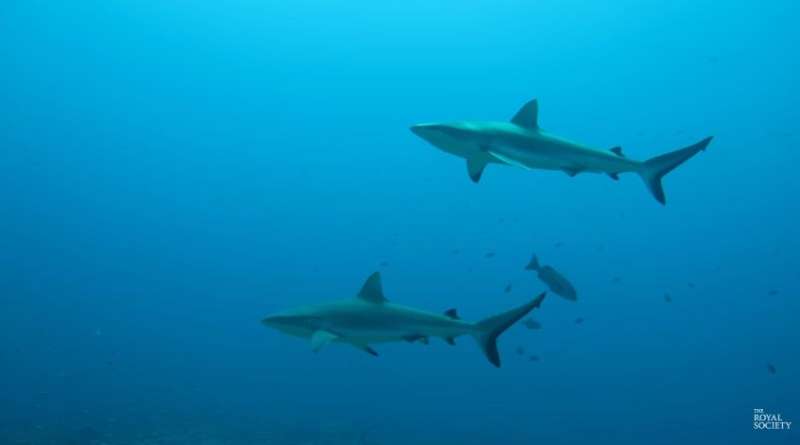Video: Tracking data and shark behaviour

Animals often share space as they move through their environment. Capturing these aggregations and co-occurrence events has proven extremely difficult in elusive, wide-ranging animals.
A recent paper published in Journal of the Royal Society Interface presents a novel approach to inferring social networks from acoustic tracking data of sharks.
The authors demonstrate the first evidence of long-term, spatially-extensive social processes in wild sharks, showing that some individuals act as leaders. Interestingly, these leaders are female sharks, revealing a new insight into the behaviour of these animals. We spoke to lead author Dr David Jacoby about the research.
More information: David M. P. Jacoby et al. Inferring animal social networks and leadership: applications for passive monitoring arrays, Journal of The Royal Society Interface (2016). DOI: 10.1098/rsif.2016.0676
Journal information: Journal of the Royal Society Interface
Provided by The Royal Society




















